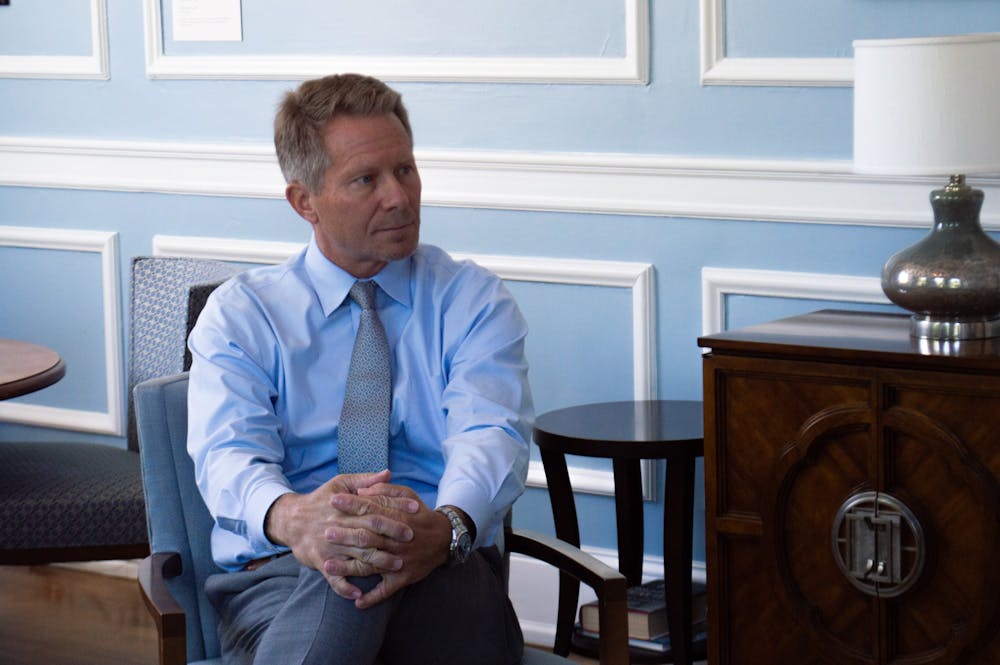Editor-in-Chief Guillermo Molero spoke with Chancellor Kevin Guskiewicz on Aug. 31 to discuss public health on campus, the University’s ongoing diversity initiatives and plans for the academic year.
This interview has been edited for brevity and clarity.
The Daily Tar Heel: So, we're all here — sitting indoors, in person, without masks. It's the first full semester of getting back into the swing of things in person. How does that feel?
Kevin Guskiewicz: It feels wonderful. We're starting the semester in an exciting place, very different from how we did the past two years. There appear to be a lot of happy smiling faces out there on campus. I've enjoyed getting out to a lot of the Weeks of Welcome events leading up to the start of the semester. And it's been great visiting classes and teaching my own class. And generally speaking, I think we're in a really good place right now.
DTH: There's still the looming public health situations going on — not only with COVID — but also with monkeypox. How is the University going to monitor and act on those ongoing public health situations, especially without a campus-wide tracker, like we had for COVID in 2020 and 2021?
KG: We have the benefit of having learned from the past experience for the past two years. We have incredible infectious disease and public health experts on our faculty. We have a student body and faculty and staff that are committed to keeping a safe living, learning and working environment on our campus. And we have an incredible Campus Health team that's committed to the safety of our students, and both their physical and mental health.
DTH: Staying on the topic of mental health. What are some of the ways the University has been trying to work to maintain the mental health of students, in addition to the Well-being Days that have been added to the academic calendar?
KG: So, back in mid-November, we held a mental health summit that was led by Dr. Samantha Meltzer-Brody, who's the chair of our psychiatry department, alongside Dr. Amy Johnson from Student Affairs. A lot of listening took place during that summit. They provided insight and talked about the opportunities that we have here to improve and to do what any leading public research university should do — and that is to learn from those experiences, lean on our expertise that we have on our campus and define additional resources. We developed a partnership with the Jed Foundation, which is about to deliver a report soon on what the unique attributes of our campus are and where we can leverage some of the expertise we have in partnership with them to provide resources for students, faculty and staff. And we implemented, through the work of our School of Social Work and their expertise, the Mental Health First Aid training for individuals on our campus.
DTH: Now, turning to other pressing things occurring on campus: In the wake of the Nikole Hannah-Jones settlement terms being announced recently, we know about a few of the measures the University is taking to try to promote inclusivity on campus. Can you talk me through those measures and some of the other ways that the school is trying to make sure that the campus is as diverse, equitable and inclusive as it could possibly be?



